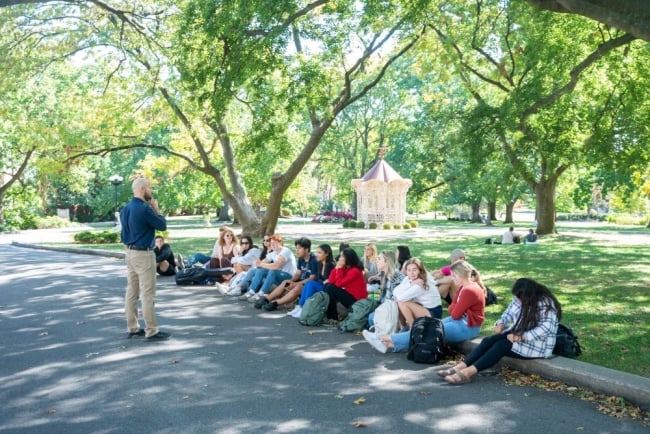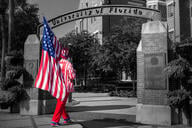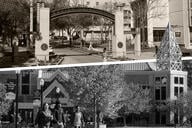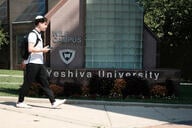You have /5 articles left.
Sign up for a free account or log in.

Faculty members at Belmont University might soon be more religiously diverse.
Belmont University
Belmont University has hired only Christian professors for most of its history, but university leaders announced Wednesday that faculty members of all faiths, or no faith at all, are now welcome to apply, representing a major policy shift for the private Christian institution in Nashville.
The university has been gradually softening in recent years to the idea of employing non-Christian professors. Last year, Belmont announced that it would allow Jewish faculty members for the first time, but only for positions in its pharmacy, law and medical schools, a move puzzling to some onlookers and celebrated by others as a step toward broader inclusivity.
Greg Jones, president of the university, said he sees the new, university-wide policy as a part of its Christian mission and a way to foster a “sense of hospitality and welcome.” Prospective faculty members have to be tolerant of the university’s religious practices, like prayers at the start of meetings, but they don’t have to be Christian to support Belmont’s “Christ-centered mission,” he said. This includes “key virtues about respecting each other as children made in the image of God” and “humility.”
“Belmont remains committed to its Christ-centered identity and will continue to primarily hire within the ecumenical Christian tradition,” he said. “However, the revised policy allows for the consideration of exceptional candidates from diverse faith backgrounds who demonstrate a strong commitment to our mission.”
He believes exposure to professors and students from different backgrounds can encourage fruitful interreligious dialogue which can strengthen students’ faith and prepare them for the diversity they’ll confront in the workplace and “secular pluralistic environments.”
“Being able to navigate people who are of other faiths, and no faith, is really important for the kind of leadership we want to cultivate,” he said.
Mark McEntire, a professor of biblical studies and president of the Faculty Senate at Belmont, said the shift felt “inevitable” since the university announced plans for a new medical school several years ago that he knew would require drawing on a broader pool of faculty applicants.
He also noted that the population of Nashville, and Belmont’s student body, have grown more diverse, and university leaders “want to serve and speak to our whole community.”
The current student population of about 8,872 students is 1 percent Jewish, 1 percent Muslim, 2 percent “other” and 8 percent students who identify as having no religion, according to data shared by the university. A fifth of students didn’t report a religious affiliation, while 52 percent are Protestant and 15 percent are Catholic.
Jewish and Muslim students in particular are both “growing populations” on campus, McEntire said. “They asked good questions,” including, “Why don’t I have any teachers that are like me? Those are good ways for them to push us.” In response to these shifting demographics, the university hired a rabbi earlier this year to serve as its first Jewish student faith adviser.
McEntire expects mixed reactions to the news of interfaith hiring from his colleagues.
“Faculty members probably fall into three groups on this,” he said, some who dislike the change, some who think it’s “exactly right” (he suspects they’re the smallest group) and some who want to “monitor” it.
“That's the thing about our current understanding of being a Christ-centered institution, not only does that grow and change over time, it doesn’t mean the same thing to everybody at any one particular time,” he said. “There will be people who are losing a piece of what they understood that to mean.”
Some details about the policy shift are yet to be finalized. For example, the university will have to make changes to its tenure and promotion process which historically has asked questions about church engagement.
McEntire stressed that non-Christian hires are going to be a minority on campus when they arrive so making them feel like they belong will be important.
“Once the decision is made and we begin to hire people from other traditions, they’re our colleagues. And we have a responsibility to take them in and treat them just like all of our other colleagues,” he said.
‘Secularization’ or Growth?
This isn’t the first time Belmont has made adjustments as a faith-based institution. It was formerly affiliated with Southern Baptists, but it became nondenominational after it cut ties with the Tennessee Baptist Convention in 2007. (The relationship ended because the university wanted to be able to choose its own trustees.)
Faculty members historically were required to be Baptist, McEntire said. “We’ve been through a lot of these kinds of changes. Our religious identity is a thing that has grown and developed, and I think that’s good.”
Some other Christian colleges have loosened some of their strictures in recent years. For example, Multnomah University, a Christian institution in Oregon, ended its requirement that all students sign faith statements last fall, a move expected to attract new students.
Still, many Christian colleges hire Christian professors only, said Perry Glanzer, professor of educational foundations at Baylor University, a Baptist institution in Texas, and editor-in-chief of the Christian Scholar’s Review.
Glanzer formulated a list of about 535 Christian higher ed institutions for his recent book, Christian Higher Education: An Empirical Guide, and found that roughly 208 required faculty members to be Christian. He also noted that Ex corde Ecclesiae, a directive from Pope John Paul II in 1990, called on Catholic colleges and universities to ensure no more than half of faculty members are non-Catholic.
Similarly the Council for Christian Colleges & Universities requires member institutions to hire only Christian full-time professors, according to chief communications officer Amanda Staggenborg.
“There is not a big movement for our member institutions to change that policy,” she said in an email to Inside Higher Ed. “On the contrary, many of our institutions value that defining position in support of their missions.”
Having faculty members of other faiths can encourage respect for diversity and prevent students from having theological discussions with a “straw person,” Glanzer observed. On the other hand, he believes many Christian students want professors who bring a Christian lens to other academic disciplines. It’s easy to “stop talking and thinking theologically in order to accommodate and show hospitality” when there are members of other faiths, or no faith, in the room, he added.
“What causes secularization is some Christian administrators want to love their fellow faculty and students more than God,” Glazer said. “They want to be hospitable, they want to be loving and want to be inclusive … and I think those are all good things, but I think you can be loving, hospitable, sensitive and be very clearly Christian …”
Eboo Patel, founder and president of Interfaith America, an organization focused on religious diversity, said there’s nothing wrong with Christian colleges choosing to hire exclusively Christian professors in order to foster a specific kind of community. However, hiring more diverse faculty doesn’t compromise a Christian college’s religious identity, he argues.
He sees Belmont’s shift as a “positive step” in “a nation tearing itself apart over prejudice and polarization.”
“If your faith is going to be able to thrive in a diverse environment, if you’re able to recognize your faith as a source of inspiration and a bridge of cooperation, it’s a very good idea to have practice doing that in college,” he said.





